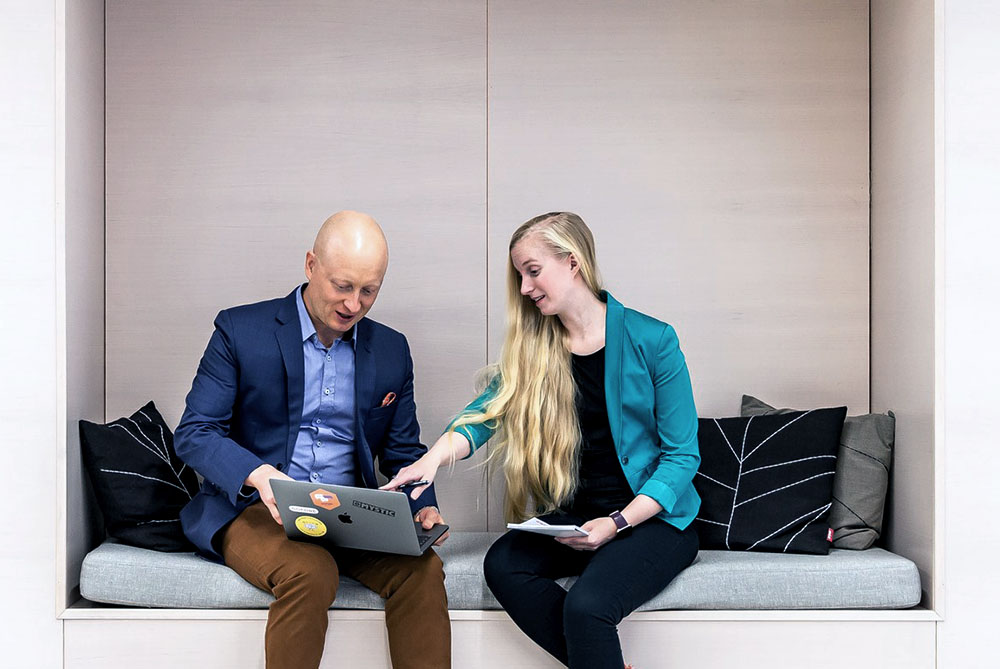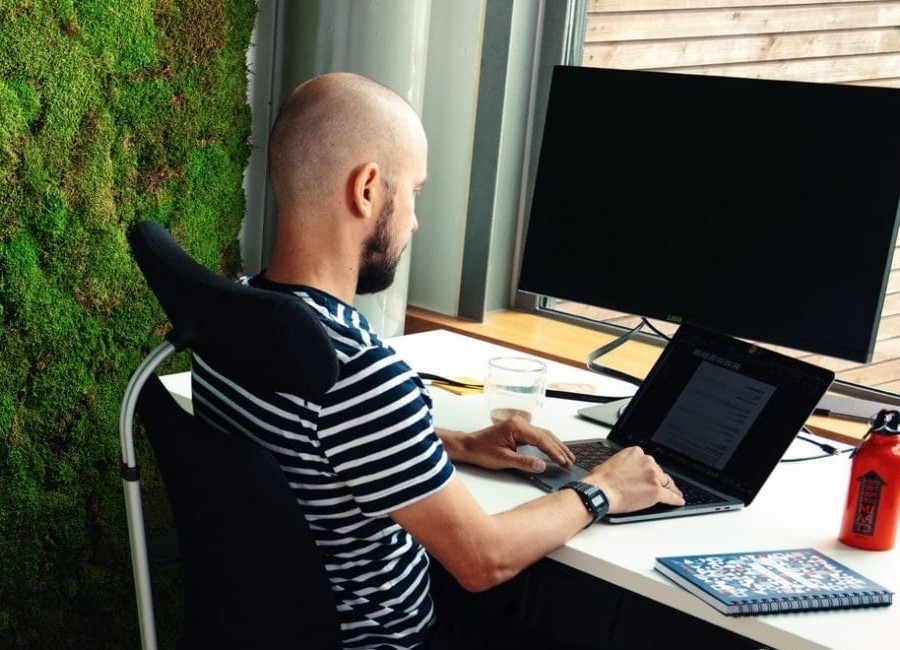It was about ten months ago when I last exchanged ideas with my colleagues’ face-to-face. This period has provided me more time to concentrate on tasks at hand. However, I would be lying if I said that I have not missed encounters in the coffee room or happy laughter at lunches with colleagues and network partners. Does this feeling resonate with you as well?
Physical Workspace Reflect Organizational Culture
The pandemic has created a new normal for knowledge workers. It has revealed to us that there is a need for a change in the ways we work, how we get organized, and how people are lead without losing our basic human social needs. Workspace choices made today will have deep implications for performance, staff well-being and leadership success for years to come.
One way to define culture is what is felt, considered, and shared as purposeful for people working within an organization. In short, the culture is about expressed values and behaviors. What remains in 2021 and beyond, is the fact that office space is still one of the most visible artifacts of a company culture. However, how, where and when physical settings express culture and ways of working will evolve.
Depending on company industry and its heritage, office spaces might represent different things. For some, they reflect free-minded thinking, light hierarchies, and self-determinant way of working. Already prior to the pandemic, in such settings office spaces had communal lounge areas, hot desk workspaces and different team/agile workrooms. For others, office space is about trustworthiness, calm working areas and possibilities for deep concentration. In such spaces, distinctive features are individual working rooms, rest areas and public open lounges to build perceptions of prosperity and power.
Evolution of Physical Workspace in 2021 and beyond
During 2020, almost all knowledge work worldwide has been transferred to virtual spaces. The pandemic and exponentially increased remote work have led to the situation where there are too many old-fashioned and expensive, inflexible empty offices in prime locations in major cities. High office space rental and inflexible rental agreements have become a burden for management. This means a drastic adjustment by any company to get organized according to workflow and specific individual employees’ needs rather than headcount, as it used to be.
Concretely this means that headquarters (HQ) will reflect even more the purpose and working culture of organizations. This HQ office space is mostly for general encounters with a big room, high-tech and touch group workspaces, and recording studio facilities, for example, for company wide webinars. The daily work is done to a great extent in a hub and spoke network of smaller shared office spaces gathering knowledge workers from many different stakeholders under one roof, not only for cost savings, but also for shared insights and more profound co-operations.
Impact on Leadership
The leaders’ role is changing. It cannot be anymore solely about alignment, but more about sparking people´s inner motivation, showing appreciation, and giving guidance. On those scarce occasions in the future, when people are getting physically together, the goal is to be engaged rather than to perform. The journey from past command and especially control to work enrichment and tackling any impediments hindering people´s potential to succeed has started and is getting stronger daily.
As far as remaining physical offices are concerned, key action for visionary leaders is to make rigid choices in design and selection of purposeful physical office spaces which support high craving for encounters, as well as allow opportunities for sudden interactions. Are you ready to make those choices already today to secure your future?



